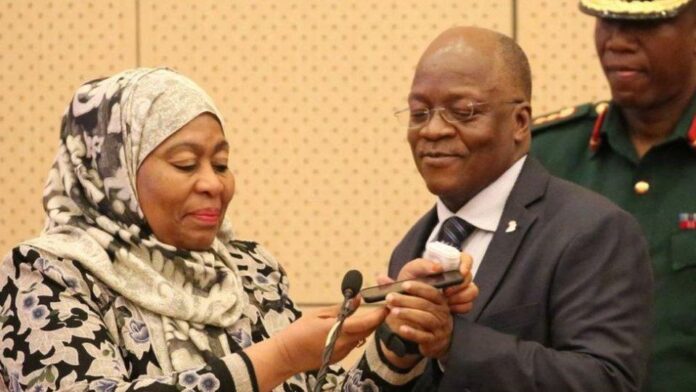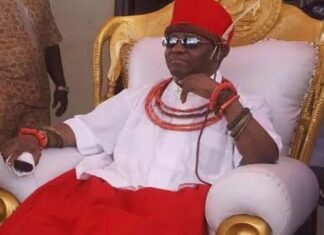By Valentine Amanze, Online Editor
Samia Suluhu Hassan has succeeded the late President of Tanzania, John Magufuli.
On Wednesday night, Hassan, the former vice president, took over the leadership as the first female president of the country.
First elected as Magufuli’s running mate in 2015, she was re-elected last year along with him and, according to the constitution, she should serve out the rest of the five-year term in the top job.
She becomes Africa’s only current female national leader and joins a short list of women on the continent to have run their countries.
The 61-year-old is affectionately known as Mama Samia – in Tanzanian culture that reflects the respect she is held in, rather than reducing her to a gendered role.
But she was a surprise choice for a running mate in 2015, leaping over several other more prominent politicians in the Chama Cha Mapinduzi (CCM) party, which has been in power in one form or another since independence in 1961, according to BBC.
First elected to a public office in 2000, she came to national prominence in 2014 as the vice-chairperson of the Constituent Assembly, created to draft a new constitution. There her calm demeanour in managing occasional outbreaks of pandemonium and the way in which she dealt with some of the more outspoken members earned her plaudits.
In terms of personality she strikes a contrast with Magufuli.
Where he appeared impulsive, not afraid to speak off the cuff and let his feelings be known, she is more thoughtful and considered.
She is also said to be a good listener who believes in following the correct procedures.
One MP, January Makamba, who worked with her in the vice-president’s office, has called her “the most underrated politician in Tanzania”.
“I have observed at close quarters her work ethic, decision-making and temperament. She is a very capable leader,” he told BBC.
But where this places her in terms of policy is not yet clear. Most significantly, she has still to announce whether she will continue her predecessor’s sceptical approach to dealing with coronavirus.
In 2005, when she was minister of labour, gender development and children in Zanzibar, she overturned a ban on young mothers returning to school after giving birth. When Magufuli was national president, he insisted that a similar ban be implemented on the mainland. It is not clear whether she opposed his stance in government.
But perhaps the most significant evidence of that was in 2017 when she visited opposition leader, Tundu Lissu, in hospital in the Kenyan capital, Nairobi, after he had survived an assassination attempt.
With people speculating that state agents had been involved, the pictures of the visit sent shockwaves through the country.
Mr Lissu went into exile afterwards – returning briefly to take part in elections last year – but went back to live in Belgium, saying he had received more death threats.
She was born in January 1960 on Zanzibar – the semi-autonomous islands off the coast of mainland Tanzania. Later she went on to study public administration, first in Tanzania and then as a post-graduate at UK’s Manchester University.
In 1978, she married Hafidh Ameir, who is known to be an agricultural academic but has also kept a low profile.
Since Ms Samia became vice-president, the two have not been pictured together.
They have four children with one, Mwanu Hafidh Ameir, who is currently a member of Zanzibar House of Representatives.
















